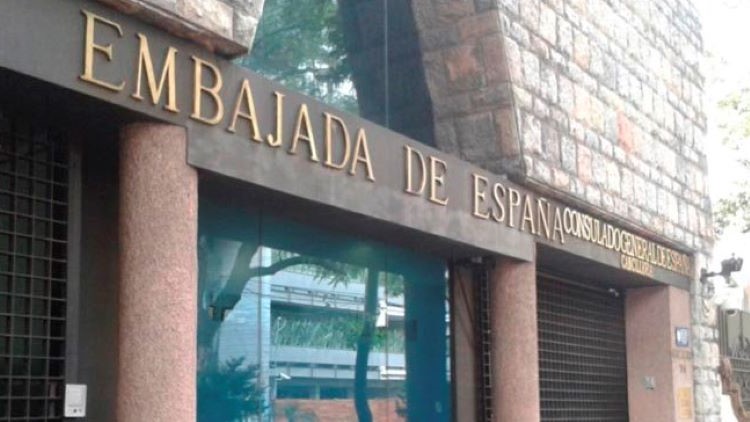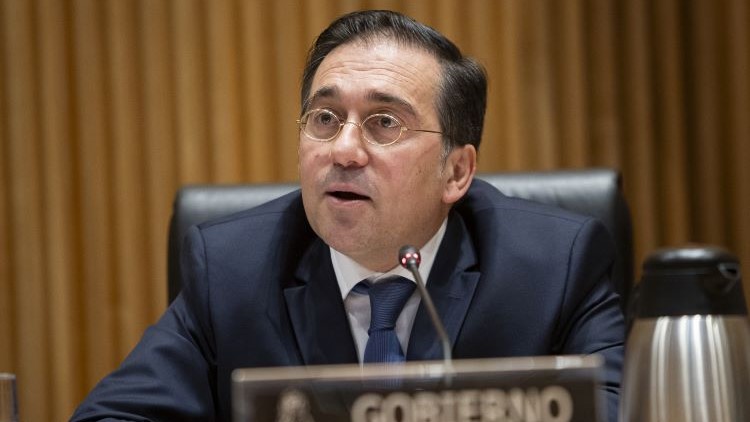Eduardo González
The Sumar Plurinational Parliamentary Group has presented a Bill to recover the possibility of requesting the right of asylum through Embassies and Consulates, a procedure that appeared in the previous 1984 Law on international protection in Spain and that was eliminated by the current 2009 standard.
The Bill, presented on January 16 by MP Enrique Santiago, recalls that in Spain an international protection system was established for the first time through the 1984 Law that regulated the right to asylum and refugee status. This standard made it possible to establish a mechanism that guaranteed the effective application of the 1951 Geneva Convention, regarding the status of refugees, and the 1967 New York Protocol, the instrument that expanded the scope of application of the previous international standard.
The 1984 Law, Sumar assures in its Explanation of Reasons, represented “a first regulation on this matter that was very advanced at the time of its approval” and had the advice of the United Nations High Commissioner for Refugees (UNHCR) and the Spanish Commission for Refugee Assistance (CEAR).
In addition, remember the training led by Vice President Yolanda Díaz, a notable feature of that norm was “the breadth with which access to protection was regulated” and the inclusion of a procedure for requesting asylum through Embassies and Consulates, a possibility that “turned the Spanish system into an international benchmark.”
In the following twenty-five years, the practice of the procedure for requesting asylum through Embassies and Consulates, “even though it was a rather exceptional possibility in the comparative panorama of international protection legislation, developed in a normalized manner, beyond the accumulation of a large number of applications at specific times, a problem that affected in the same way the rest of the established routes for access to the procedure, such as formalization within the territory or at border posts.
However, the text continues, the current law that regulates the right of asylum and subsidiary protection in Spain, approved in 2009, “chose to suppress this access route that characterized the Spanish procedure.”
After “an intense social and parliamentary debate” a procedure was included as an alternative for “the transfer to Spain of those people who wish to request asylum before our authorities and are at risk in a third country”, so that, once transferred to Spanish territory, can formalize the asylum request. To this end, the 2009 Law itself referred the regulation of this transfer procedure to a later regulatory development, within a period of six months from its entry into force, but “fourteen years after the approval of the current asylum law, regulatory development has not occurred.”
The current situation, according to Sumar, presents “numerous problems in practice.” An example of this is the hundreds of transfer requests received by the Spanish Embassy in Islamabad between December 1, 2022 and April 5, 2023 from Afghan refugees who had fled to Pakistan due to the political situation. of his country. According to Sumar, the Spanish representation in Islamabad was forced to cancel numerous appointments made in advance because it could not cope with them. Furthermore, the text continues, although the absence of this rule has not prevented transfers from taking place in specific situations, in these cases “considerations of political and diplomatic opportunity have taken precedence, a discretion that could become discriminatory.”
Article 38
“As stated in the Global Compact on Refugees, approved by the United Nations General Assembly on December 17, 2018, in the current migration context it is necessary to establish safe pathways so that refugees can enjoy effective international protection,” Sumar continues.
For all these reasons, the Bill calls for “recovering the traditional Spanish procedure for accessing asylum through diplomatic channels, with the aim of advancing legal security and guarantees for affected people.” To this end, it proposes a modification of article 38 of the 2009 Law so that the Consulates and Embassies of Spain can deal with cases that arise outside the national territory by receiving asylum applications “by any means valid in law.”
The Spanish Consulate or Embassy of the country in which said international protection is requested “must guarantee physical access to the diplomatic representation premises or enable a safe space to carry out the procedures and assist applicants for international protection.” Likewise, the presentation of the application for international protection “will give rise to the start of the calculation of the deadlines provided for its processing through the procedure in Spanish territory.”
In certain cases (when the physical integrity of the applicant is in danger, the principle of non-refoulement is at risk or exceptional humanitarian circumstances occur), the diplomatic representation of Spain may promote the transfer of these people to Spain to continue the application. To this end, the Ministry of Foreign Affairs, through the Spanish diplomatic mission or consular office, will issue visas, travel documents or safe-conduct passes to facilitate this transfer.







